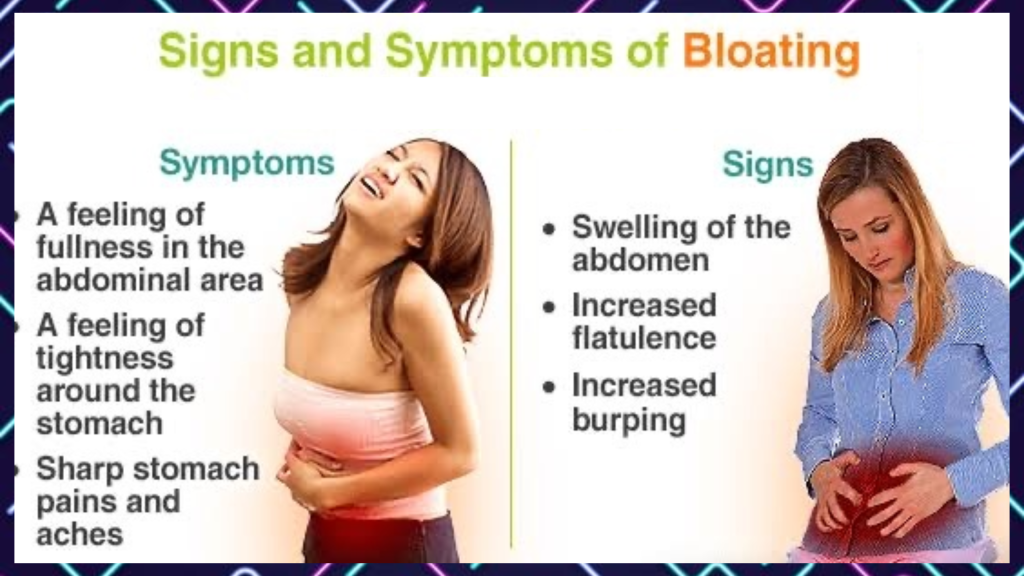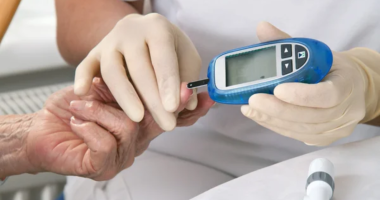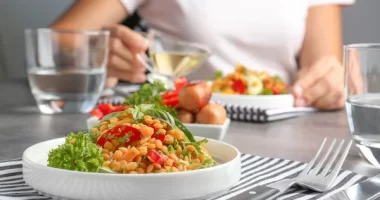The 8 foods that cause belly bloating are regular foods we consume. Bread, specifically white bread, contains gluten. Gluten has carbohydrates that few people cannot digest fully. When this happens, it ends up in their large intestine where it is broken down by bacteria which leads to bloating by producing gas.
Aside from the white bread mentioned, other kinds of food could make one feel gassy or even start swelling.
What Is Bloating?
Bloating is a condition where the abdomen feels full, tight, and swollen, often due to gas buildup in the digestive tract. It is a common problem that can be caused by various factors, including eating certain foods, constipation, medical conditions, hormonal changes, infections, and swallowing too much air while eating, drinking, chewing gum, or smoking. In this article, we will discuss those foods that can cause belly bloating aside from bread. They include;
8 Foods That Cause Belly Bloating Aside From Bread

1. Beans and Legumes: Beans, lentils, and peas contain sugars like raffinose that the body struggles to break down efficiently. These sugars can ferment in the gut, leading to gas production and bloating. Opting for easier-to-digest beans like mung beans or green beans can help reduce bloating associated with legumes[1].
2. Carbonated Drinks: Carbonated beverages, including fizzy sodas, are infused with carbon dioxide gas that can accumulate in the digestive tract, causing bloating. Choosing alternatives like plain water or fresh fruit juices can prevent excess gas buildup and reduce bloating[2].
3. Cruciferous Vegetables: Vegetables like broccoli, cauliflower, and Brussels sprouts are nutrient-dense but can also be challenging to digest, leading to bloating. Cooking these vegetables or replacing them with easier-to-digest options like spinach or zucchini can help alleviate bloating[3].
4. Dairy Products: Dairy foods, especially those containing lactose, can trigger bloating in individuals with lactose intolerance. Opting for lactose-free alternatives or consuming fermented dairy products like yogurt can be gentler on the digestive system and reduce bloating[4].
5. High-Fat Foods: Fatty foods take longer to digest, potentially causing delayed stomach emptying and bloating in some individuals. Avoiding high-fat foods can help prevent bloating episodes related to slow digestion[5].
6. Sugar Substitutes: Sugar alcohols like sorbitol and xylitol, commonly found in sugar-free products, can lead to gas production and bloating. Choosing natural sweeteners like stevia or monk fruit extract can be a better option to avoid bloating[6].
7. Fructose-Rich Fruits: Certain fruits high in fructose, such as apples, watermelon, and grapes, can cause bloating in individuals sensitive to fructose. Opting for fruits with lower fructose content like berries or citrus fruits can help reduce bloating[7].
8. Onions and Garlic: Onions and garlic contain fructans, which are soluble fibers that can contribute to bloating. Substituting these with alternatives like celery, leeks, or fennel can help minimize bloating and digestive discomfort[8].
Understanding the impact of these foods on bloating and making dietary adjustments can significantly alleviate abdominal bloating and improve digestive comfort. If bloating persists or is accompanied by severe symptoms, consulting a healthcare provider is advisable for proper evaluation and management.
How To Prevent Bloating After Eating Bloat-Inducing Foods
While certain foods like beans, cruciferous vegetables, dairy, and carbonated drinks can commonly trigger bloating, there are several strategies you can use to help prevent or minimize bloating after consuming these foods:
Eat Slowly and Mindfully. Eating too quickly can cause you to swallow excess air, which can contribute to bloating. Make an effort to eat slowly, chew your food thoroughly, and avoid talking while eating. This can help reduce the amount of air you ingest.
Limit Portion Sizes. Consuming large portions of bloat-inducing foods can overwhelm the digestive system. Try to eat smaller, more frequent meals and limit your intake of gas-producing foods. This can make them easier to digest and reduce bloating.
3. Incorporate Digestive Enzymes. Taking over-the-counter digestive enzyme supplements can help break down the complex carbohydrates in foods like beans and cruciferous veggies. This can minimize gas production and bloating.
4. Try Probiotics. Consuming probiotic-rich foods like yogurt, and kefir, or taking a probiotic supplement can help promote healthy gut bacteria and improve digestion, potentially reducing bloating.
5. Stay Hydrated. Drinking plenty of water can help move food through the digestive tract more efficiently and prevent constipation, which can contribute to bloating.
6. Limit Carbonated Drinks. The carbonation in sodas, sparkling waters, and other fizzy drinks can cause gas buildup in the digestive system, leading to bloating. Opt for non-carbonated beverages instead.
7. Manage Stress. Stress can disrupt digestion and exacerbate bloating. Try relaxation techniques like deep breathing, meditation, or gentle exercise to help mitigate the effects of stress on your gut.
Symptoms

Bloating is a common digestive issue that occurs when the gastrointestinal (GI) tract becomes filled with air or gas. The main symptoms of bloating include:
- Stomach pain or discomfort
- A feeling of fullness or tightness in the abdomen
- Abdominal distension or a swollen, protruding belly
- Frequent burping or belching
- Excessive gas (flatulence)
- Abdominal rumbling or gurgling noises
Other associated symptoms that may occur with bloating include:
- Constipation or difficulty having bowel movements
- Diarrhea
- Nausea
- Vomiting
- Heartburn
- Fatigue or feeling sluggish
When To See A Doctor

You should see a doctor for bloating if:
- You experience bloating more than 3-4 times per week
- Your bloating doesn’t go away or keeps coming back
- You have severe or persistent abdominal pain along with the bloating
- You have other concerning symptoms like diarrhea, constipation, rectal bleeding,
- unintentional weight loss, nausea, vomiting, or fatigue
Seek medical attention promptly if you have bloating along with:
- Blood in your stool
- Changes in bowel habits
- Unexplained weight loss
- Loss of appetite or feeling full quickly
A doctor can help diagnose the underlying cause of chronic or severe bloating through tests like blood tests, stool tests, endoscopies, or imaging scans. They can then provide appropriate treatment, which may involve dietary changes, medications, or addressing an underlying condition like irritable bowel syndrome (IBS), inflammatory bowel disease (IBD), celiac disease, gastroparesis, or intestinal obstruction.
ALSO READ: What Causes Bloating—and What to Do About It
More Sources
- https://www.ncbi.nlm.nih.gov/pmc/articles/PMC7692077/
- https://www.nhs.uk/conditions/bloating/










